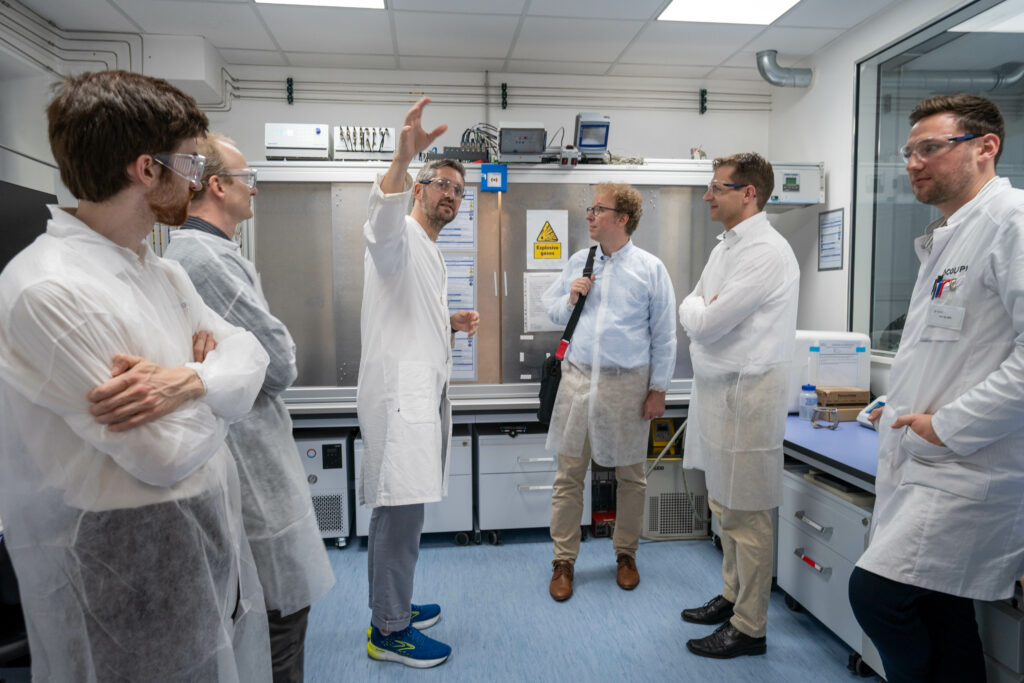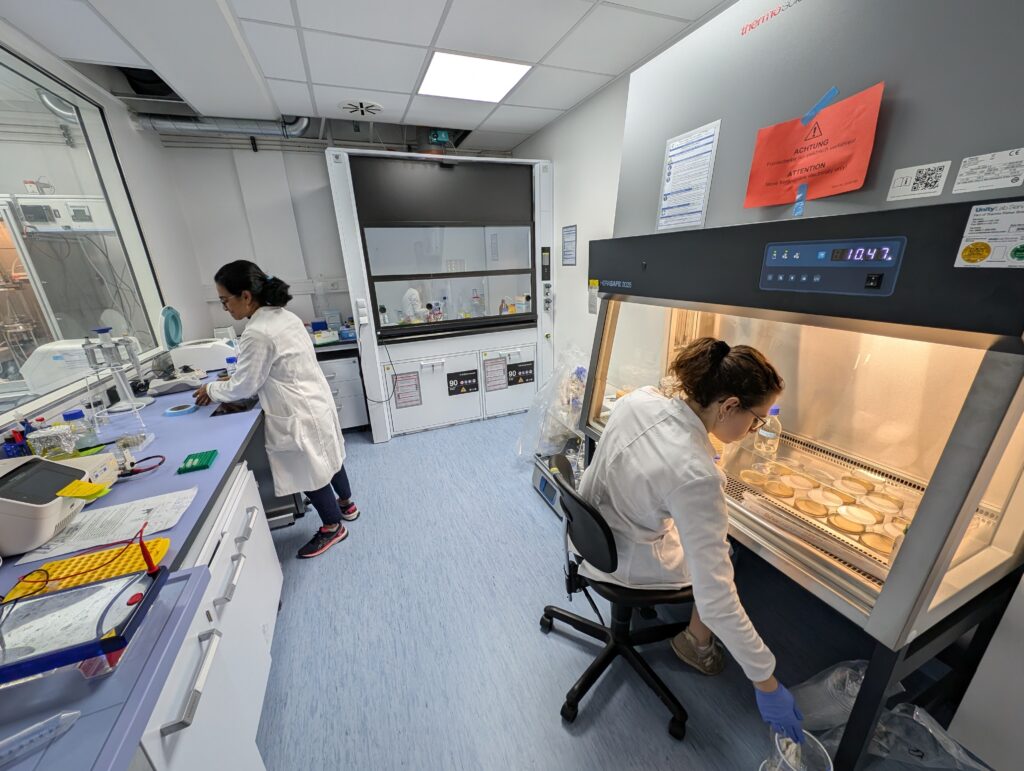COLIPI does this with biology, innovative technologies and a great team from Hamburg
Since 2021, COLIPI’s founding team has been dedicated to the development of scalable oil production in which yeast and bacterial cultures utilise industrial carbon side streams. This is a forward-looking solution, especially with regard to CO₂ utilisation, as bacteria can be fed with CO₂. The resulting oil, which mimics vegetable oils such as palm oil, serves as a raw material for biofuel production or consumer goods such as cosmetics, detergents and other products. The carbon footprint of COLIPI oils is lower than that of any other oil.
However, the path from the university laboratory to the free market is arduous. Philipp Arbter and Jan de Witt, two of the founders, explain the process of carbon utilisation to visitors and emphasise the challenges they have overcome so far.
Building an international research and development network
Today, raw materials for the food industry cause up to 80% of corporate CO2 emissions – a challenging fact, as they should be net zero by 2050 at the latest.
Support from the TUTECH IP team
Another key success factor was the close support provided by the PVA Hamburg IP team at TUTECH, which has been accompanying COLIPI on its successful journey since 2020. The services included:
- Evaluation of the inventions: All of the founders’ technical innovations were assessed for patentability.
- IP strategy: The founders were advised on the development of a customised strategy to maximise the scope of protection of their intellectual property rights.
- EXIST application: The IP team supported the application for EXIST research transfer funding by drafting specific passages on the IP strategy and a freedom-to-operate statement.
- Patent applications: Several patent and trade mark applications were successfully filed, supported by the procurement of a suitable patent law firm.
- IP transfer: The TUHH IP was transferred to the foundation through carefully drafted contracts and fully rewritten.
- €1.2 million initial EXIST research transfer funding (2021)
- €2.9 million increase in EXIST funding (2023)
- €1.8 million in seed funding (2024)
We help small and medium-sized companies to break new ground.
As a Hamburg partner in the EU-funded “Enterprise Europe Network” (EEN), Tutech offers access to the world’s largest service network for cross-border business development. Small and medium-sized enterprises and their partners receive free individual support from the EEN team at Tutech and our 3000 network colleagues in over 60 countries in setting up international business and research collaborations as well as advice on innovation and internationalisation.
For reliable commercial success.
We find and commercialise inventions at Hamburg’s universities and non-university research institutions
Have you developed an innovative product or a new technology and would like to commercialise it as successfully as possible and strengthen your competitive position in the long term? We support you in securing the exclusivity of your product.

